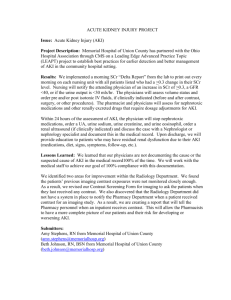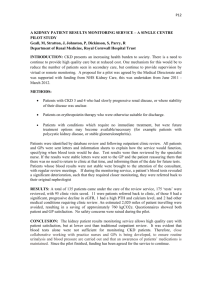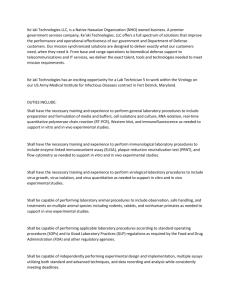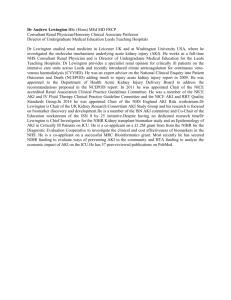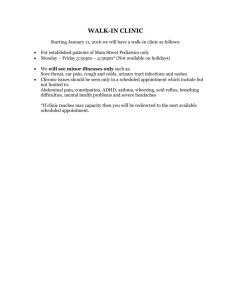Acute Kidney Injury clinic – our experience
advertisement
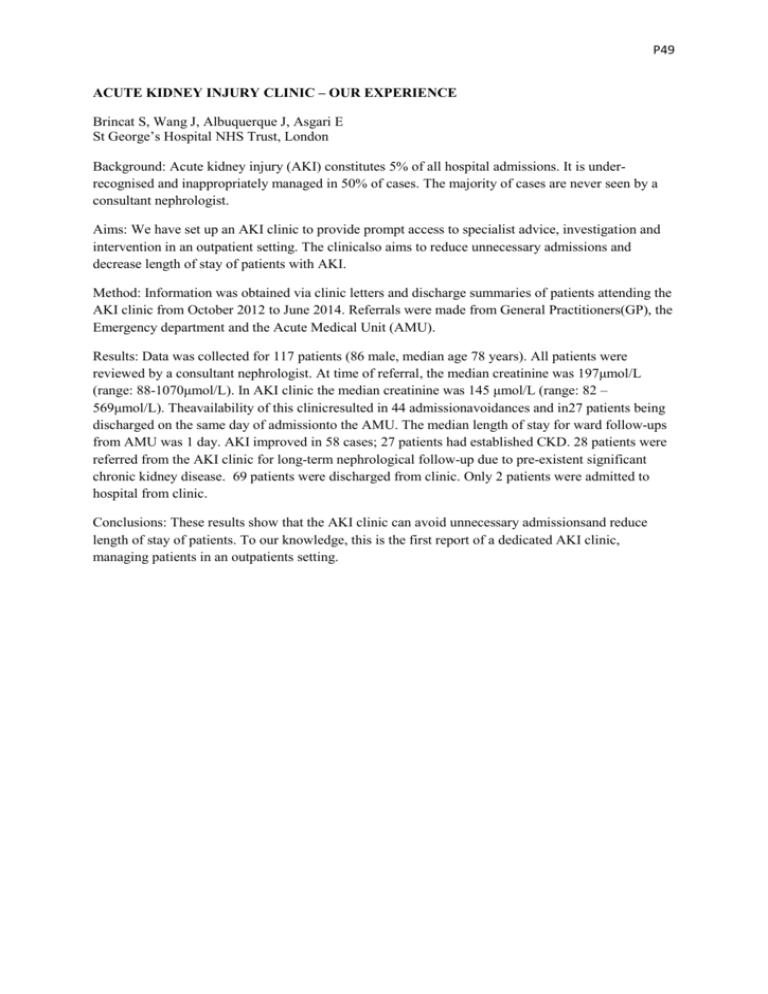
P49 ACUTE KIDNEY INJURY CLINIC – OUR EXPERIENCE Brincat S, Wang J, Albuquerque J, Asgari E St George’s Hospital NHS Trust, London Background: Acute kidney injury (AKI) constitutes 5% of all hospital admissions. It is underrecognised and inappropriately managed in 50% of cases. The majority of cases are never seen by a consultant nephrologist. Aims: We have set up an AKI clinic to provide prompt access to specialist advice, investigation and intervention in an outpatient setting. The clinicalso aims to reduce unnecessary admissions and decrease length of stay of patients with AKI. Method: Information was obtained via clinic letters and discharge summaries of patients attending the AKI clinic from October 2012 to June 2014. Referrals were made from General Practitioners(GP), the Emergency department and the Acute Medical Unit (AMU). Results: Data was collected for 117 patients (86 male, median age 78 years). All patients were reviewed by a consultant nephrologist. At time of referral, the median creatinine was 197μmol/L (range: 88-1070μmol/L). In AKI clinic the median creatinine was 145 μmol/L (range: 82 – 569μmol/L). Theavailability of this clinicresulted in 44 admissionavoidances and in27 patients being discharged on the same day of admissionto the AMU. The median length of stay for ward follow-ups from AMU was 1 day. AKI improved in 58 cases; 27 patients had established CKD. 28 patients were referred from the AKI clinic for long-term nephrological follow-up due to pre-existent significant chronic kidney disease. 69 patients were discharged from clinic. Only 2 patients were admitted to hospital from clinic. Conclusions: These results show that the AKI clinic can avoid unnecessary admissionsand reduce length of stay of patients. To our knowledge, this is the first report of a dedicated AKI clinic, managing patients in an outpatients setting.
